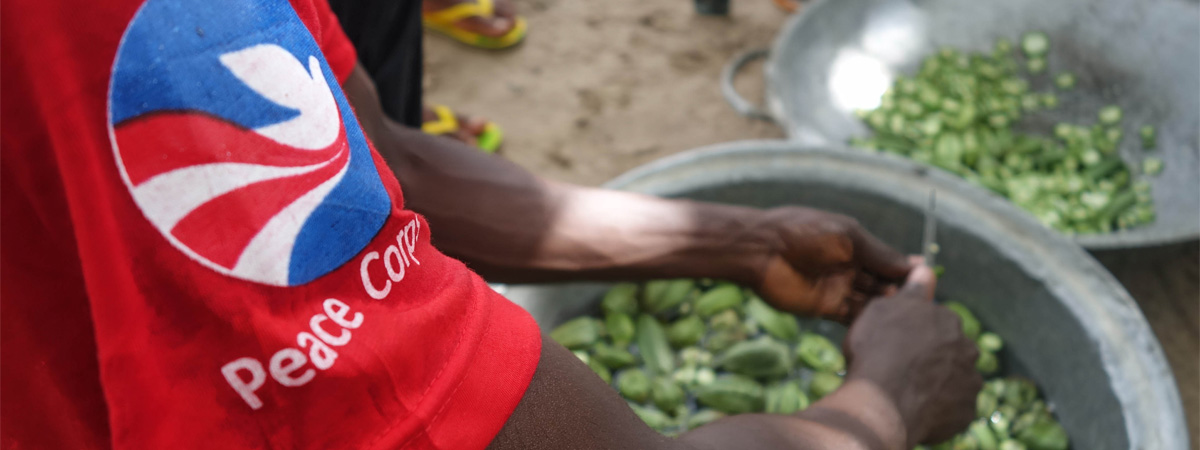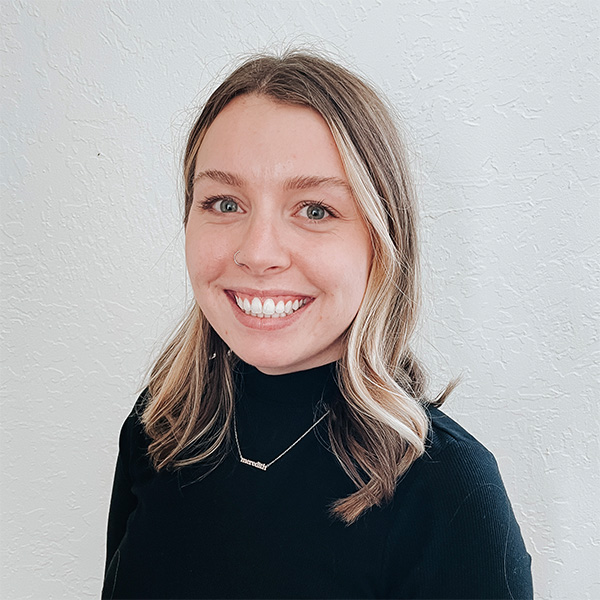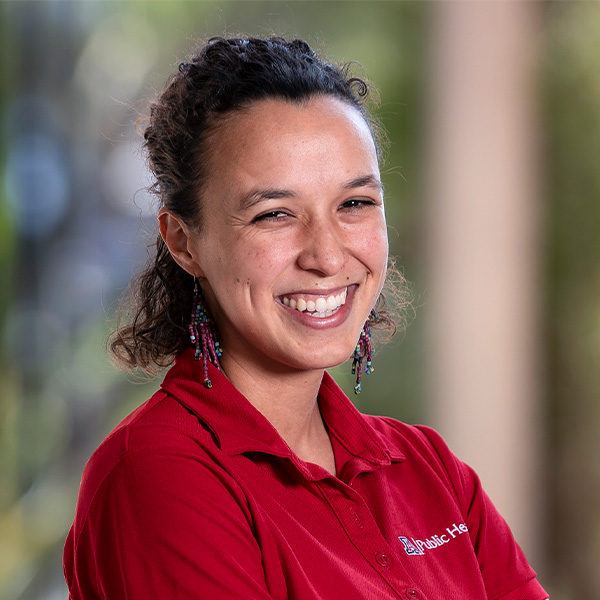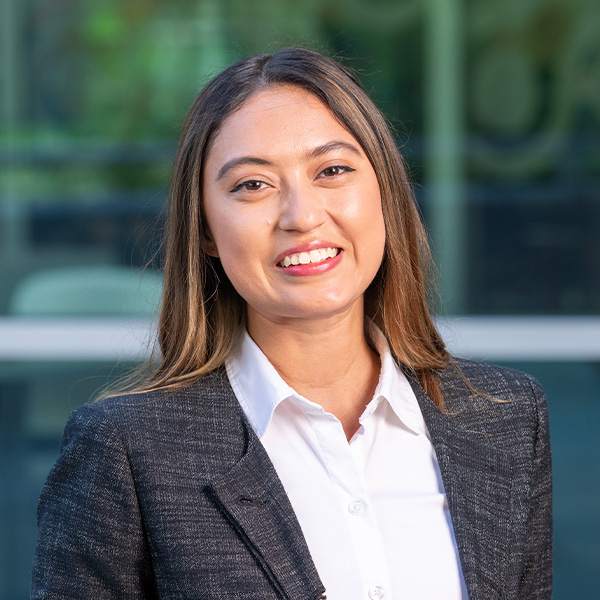Returned Peace Corps Volunteers Choose Public Health for Graduate Degrees

Powered by their passion to improve health and wellness in the world, more Returned Peace Corps Volunteers come to the College of Public Health to earn graduate degrees than any other college or program on campus.
Many young Americans give months or years of their life to service with the Peace Corps to help communities in other countries, then return to the United States with valuable real-world experience. Once they have served, many of them stay connected with the Peace Corps organization, and are known as Returned Peace Corps Volunteers or RPCVs. A high percentage of RPCVs go on to earn graduate degrees that will help them make the world a better place, and that is where the University of Arizona, and the Mel and Enid Zuckerman College of Public Health (MEZCOPH) come into the picture.
The University of Arizona stands out as one of the top schools in the country for RPCV students who pursue graduate degrees. Among those students at UArizona, the College of Public Health draws more RPCV students than any other college or program on campus, and the majority of them are in the Master of Public Health (MPH) program. Our MPH programs prepare students with crucial skills and knowledge that empower them to make a difference in the world.
From the Peace Corps to Public Health

Meredith Brewer
Often the experiences that RPCVs had overseas was an introduction to the power of public health. Meredith Brewer, a first year MPH student at MEZCOPH with a concentration in Global Health, credits her time in the Peace Corps for her interest in Public Health. She served in Guyana from 2018 to 2020 and worked on adolescent health projects, especially education programs related to mental health and sexual health.
“My Peace Corps service is the reason I’m working towards a career in Public Health,” says Brewer, “As an undergrad I thought I wanted to be a physical therapist, but during my Peace Corps service, I saw the value of health education and the community partnerships at the center of public health, and I fell in love with the public health approach.”

Maiya Block Ngaybe, MPH
Maiya Block Ngaybe, MPH, a second year PhD student in the Health Behavior Health Promotion concentration, served with the Peace Corps from 2016 to 2018 in Cameroon. She worked on malaria and HIV prevention campaigns in the community where she served, and her experience led her to see how public health can help change behaviors to improve lives.
“I am passionate about behavior change in public health, and learning why people make the decisions that they do when it comes to their health,” says Ngaybe, “In a world where many chronic diseases and infectious diseases are preventable and determined by simple changes in our behavior, I find it interesting to learn what influences people’s decisions, especially when the consequences of individual decisions can sometimes affect the entire community.”

Stefany Calderon
Stefany Calderon served with the Peace Corps in Botswana from 2018 to 2020 where she focused on health education projects in schools and initiated a support group for youth with HIV, a challenge that taught her about managing groups and resources. She’s now in the joint MPH/MBA program with a concentration on policy and management.
“Through my Peace Corps service, I realized that I loved the management side of health, and that’s why I decided to get my MPH with a concentration in Policy and Management,” says Calderon, “I’m especially passionate about community and resource mobilization in Public Health. I believe that inequities are not due to a lack of resources but rather a lack of discernment about where those resources would provide the most benefit.”
Education Funding for Returned Peace Corps Volunteers
Volunteers return from their Peace Corps service with deep experience and perspective, and often they are eager to build on what they learned and continue to change the world. Fortunately, RPCVs are eligible for higher education funding through the Coverdell Fellows Program. This is a national program to help fund RPCVs, and the University of Arizona is consistently near the top for the highest number of active Coverdell Fellows in graduate degree programs among large U.S. universities. Here at UArizona, the Coverdell Fellows Program is known as one of the most active and financially generous in the country.
Graduate students in the Coverdell Fellows Program, called “Fellows,” are required to provide service that benefits an underserved community, and for MPH students that service is usually completed with through the internships that are part of the MPH degree program. In addition to financial assistance, Fellows are provided with professional development opportunities that further the mission of the ‘Third Goal’ of the Peace Corps – to strengthen understanding about the world and its people in American society.
The students and programs at MEZCOPH also support the ongoing efforts to recruit new Peace Corps volunteers from the University of Arizona, as well as bring new RPCVs to the college. The Global Health Institute (GHI) at MEZCOPH works on many international student programs and provides a webpage that highlights the RPCV students in the college. GHI staff also maintains close relations with the Peace Corps programs on campus.
“We really appreciate our collaboration with the Peace Corps programs on campus, especially the Coverdell Fellows,” says Roxanna Apaez, Manager at GHI, “our Returned Peace Corps Volunteer students are passionate about public health and they bring so much to the college.”

Our Returned Peace Corps Volunteer students are passionate about public health and they bring so much to the college.

The university offers the Peace Corps Prep Certificate Program to provide undergraduate students with the opportunity to integrate coursework with hands-on experience and professional development preparing students for international fieldwork and potential Peace Corps service. These programs are supported by many RPCV students in public health. MPH student Stefany Calderon works on outreach to UArizona undergraduates.
“Currently, I am the on-campus Peace Corps recruiter for the University of Arizona,” says Calderon, “I’m excited to expose undergraduate students, especially first-generation groups or students who have never heard of the Peace Corps, to the opportunities available to them.”
Over time, the UArizona’s Coverdell Fellows Program has grown into a network of support that fosters relationships among RPCVs, a network that has had an impact on Southern Arizona. PhD student Maiya Block Ngaybe expressed the appreciation that many RPCVs share.
“I really want to thank the Peace Corps Coverdell program for being so supportive and creating community for RPCVs here in Tucson,” says Ngaybe, “Tucson has become a special place for me not only because it is close to the home where I grew up, but also because I now have this community of RPCVs who often stick around after studying at the University of Arizona. They are making a difference in my home state, implementing great projects, and doing amazing work – for all that I’m grateful. Thanks especially to Georgia Ehlers who really helped to start the Coverdell program and make it what it is today.”
Check out the events happening for UArizona's Peace Corps Week from Feb 21 to 28, 2023.

